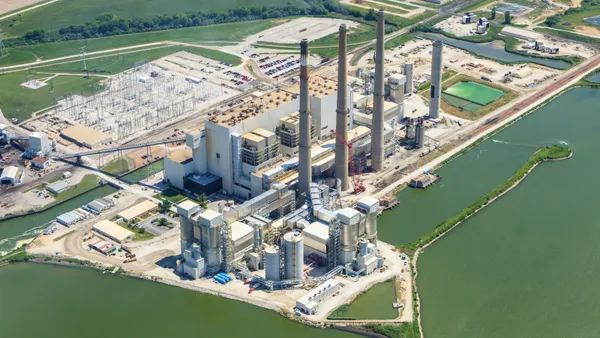Dive Brief:
-
Ohio utility FirstEnergy last week filed a new bankruptcy agreement with its former generation subsidiary FirstEnergy Solutions (FES) as state lawmakers debate a plan to save its ailing nuclear plants.
-
The new bankruptcy deal eliminates so-called "non-consensual releases" that would have allowed FirstEnergy to walk away from cleanup liabilities associated with coal and nuclear plants it plans to retire. A bankruptcy judge called those "patently unconfirmable" in an oral ruling this month.
-
FirstEnergy continues to lobby Ohio lawmakers for financial support for its two retiring nuclear plants in the state. Gov. Mike DeWine, R, expressed support for keeping the plants online this week, but did not comment directly on a bailout package being debated by state legislators.
Dive Insight:
Just as FES nears a bankruptcy deal with its former parent company, Ohio lawmakers are readying plans to save two of the plants that pushed the company into Chapter 11 a year ago.
Ohio lawmakers are debating a bill that would charge consumers a "clean air" fee on their monthly bills to support two FirstEnergy nuclear plants — the 908 MW Davis-Besse plant and the 1,268 MW Perry facility.
Like FirstEnergy's other coal and nuclear generators, those plants are not competitive with low-priced natural gas and renewables in the PJM electricity market that covers Ohio. A draft version of the bill, leaked early this month, would create a $300 million customer-financed fund to keep them online while easing energy efficiency standards for utilities.
DeWine did not weigh in on the merits of the proposal on Monday, but told reporters at an Earth Day event that nuclear should remain part of Ohio's fuel mix in the immediate future.
"You cannot dramatically reduce carbon or keep those numbers down without using nuclear. I'm all for wind and solar," he said, according to multiple media reports. "Those are going to continue to move forward, I believe, but you cannot hit the number without using nuclear. So nuclear is an important part of this."
Regardless of lawmakers' actions, FirstEnergy says the bankruptcy deal will allow it to separate completely from the ailing assets owned by its former generation subsidiary, completing a transition to focus on its regulated utility business.
In a release, the company said the non-consensual releases in its original bankruptcy deal "served to bring finality to FirstEnergy's involvement with these legacy assets," but said their removal will not "increase liabilities or obligations to our company."
The company aims to conclude its Chapter 11 proceeding this year.













